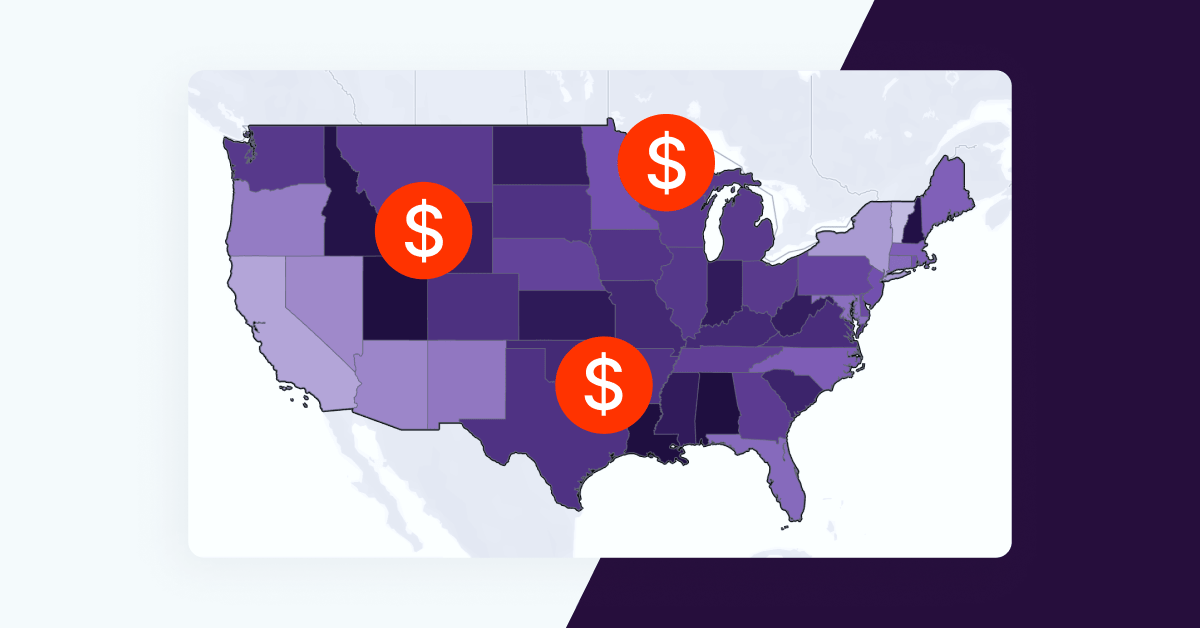2023 is here, and we’ve received a lot of questions about what workplace equity trends to expect in this new year. To answer these questions, I recently moderated a webinar featuring a panel of experts in law, compensation, EU trends, and more, including Syndio’s Zev Eigen, Founder and Chief Data Scientist, Ritu Mohanka-Vedhara, Managing Director and Head of EMEA, and Nancy Romanyshyn, Director of Pay Strategy and Partner Success.
The team fielded a variety of questions from participants, but seven key workplace equity insights for 2023 emerged in the discussion:
1. Pay transparency legislation pressure will continue.
With increasing legislation in the U.S., from New York City (and now New York State) to California, the team sees a “domino effect” of laws spreading across the country. The laws may apply specifically to workers in those jurisdictions, but experts say they’re likely to have a big impact for workers nationwide.
Zev also pointed out that the recruitment site Indeed has announced a policy that all job listings will include salary ranges; if not provided by the listing company, Indeed will calculate the range with an algorithm that is based on a variety of factors, including job title, experience qualifications, education requirements, and job location. In addition, in a recent survey, 79% of companies said they are planning, considering, or already actively posting pay range data in locations where there is no legal requirement to do so.
“So employers who say, ‘Oh, we’ll just wait for the laws to apply to us,’ that information is going to be out there. Employees who are not in jurisdictions where you’re posting, guess what? They’re either going to go on Indeed or pull the posting from California or Colorado, and they’re going to have the information anyway. So employers are going to need to figure that out.”
– Zev Eigen
2. Pay transparency laws will continue to spread globally.
One of the biggest workplace equity insights for 2023 that the team said they saw now and going forward is the globalization of pay laws, with legislation becoming less of a “patchwork quilt” and more consistent. This trend is happening both in the U.S. and in the EU with the new EU Directive on Pay Transparency that just moved forward last month. On one hand this will make it easier for Total Rewards teams to manage salaries in multinational companies, but they will need to be able to set realistic pay ranges and reconcile pay gaps.
3. Pay transparency pressure from employees and applicants will increase.
A recent survey showed that 85% of workers said they are more likely to apply to job ads that list salary ranges. Another survey on pay transparency found that 79% of all survey respondents want some form of pay transparency and 32% want total transparency, in which all employee salaries are publicized. The survey also found that 68% of employees would switch employers for greater pay transparency, even if compensation was the same.
“I think we’re entering this new place where we see the democratization of information. Employees have an expectation like never before; there’s a shared power now. Compensation isn’t something that happens to you, you have a voice. I think this is an opportunity for employers to stand up and say, ‘This is what we value, this is how we value you, this is how we’re going to win together.’”
– Nancy Romanyshyn
3. Companies will need to understand their compensation drivers: Why do you pay what you pay?
The team pointed out that in order to address pay transparency with confidence, organizations need to understand what drives their compensation. Telling someone they’re paid between X and Y without explaining why there is variation is not very useful information, Zev said. Zev and Nancy recommended that companies take these steps when evaluating their compensation drivers:
- Conduct a pay equity analysis so you can talk about specifics.
- Figure out your company’s pay philosophy and intent.
- Make sure your pay is based on policies and not random factors.
- Don’t try to make it perfect — just making the effort will go a long way with employees, and you can adjust as you learn.
- Remember that the cost of not doing anything is way greater than the cost of taking action.
4. Companies will need a communication strategy across all things workplace equity.
A recent Gartner survey found that only 38% of employees in the survey reported that they understood how their pay is determined. When organizations educate employees about how pay is determined, employee trust in the organization increases by 10% and pay equity perceptions increase by 11%.
As we move into this new era of pay transparency, Total Rewards professionals will increasingly be asked to be communicators, Nancy and Ritu agreed. They recommended some communications strategies that Total Rewards teams should consider, including:
- Get comfortable with talking about pay. Younger generations are comfortable with it, and you need to talk to them as though you’re not trying to hide information from them.
- Be genuine — share information including where the organization is currently, where there is room for improvement, and what your action plan is.
- Be open to questions and respond in a timely manner to critical comments.
- Seek external validation. Communicating compliance with trusted standards brings real credibility to workplace equity announcements and strategy.
5. A potential recession will make workplace equity and DE&I more important than ever.
While a recession would change the overall outlook for business, the panel pointed out that we are still in a tight labor market. This means that workplace equity and DE&I will be more important than ever to attract and retain top talent, with fewer resources you can leverage to maintain equity.
“One of the things you can leverage is opportunity. Making sure employees know they can grow with you is going to be the key to keeping them.”
– Nancy Romanyshyn
Zev added that from a legal perspective, in a tighter labor market organizations need to pay close attention to ensure they’re not making mistakes, as there are more opportunities to get things wrong. For this reason, in addition to the recruitment and retention aspect, it’s unwise to discontinue DE&I and workplace equity practices during a downturn, he said.
6. Organizations, especially those that have slowed hiring, will need to think creatively to fill positions and retain top talent while improving diversity.
Even while organizations are slowing or freezing hiring, positions will need to be filled, and HR will still need to consider diversity goals. Achieving this will require creativity, Nancy said. She suggested considering what your available talent pool is and where you may have tangential job families that could allow you to train people and move them across the organization. This can help you make sure you have true diversity of thought and experience and skills throughout the organization. Ritu suggested that organizations check to see if they have sufficiently robust resources to ensure that there are opportunities to move laterally or upskill to new roles.
7. DE&I teams will grow and become less siloed.
Rather than becoming less important, the panel felt that DE&I teams would grow in 2023 and beyond. Chief Diversity Officers have become key thought leaders in many organizations, and have a huge stake in the company’s success as it relates to their DE&I initiatives. The team believes that DE&I teams will be larger and there will be increased partnership between DE&I and ESG practices. As Gen Z workers continue looking for diversity, equity, inclusion and environmental consciousness in their employment, organizations will need to provide more than performative DE&I efforts to retain them.
These are just a few of the workplace equity insights for 2023 that the panel discussed in this webinar. For more, watch the on-demand recording.


